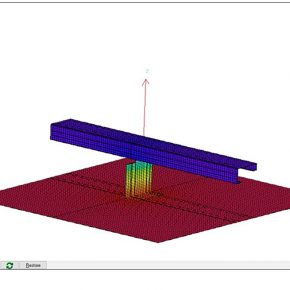
Compelling reasons to buy into BREEAM
GUEST BLOG: Michael Brogden, Director, Darren Evans Assessments on how implementing BREEAM has raised the bar for sustainability and added tangible value to over 425,000 buildings.
BREEAM was developed 25 years ago by the Building Research Establishment (BRE) as a comprehensive assessment tool for demonstrating a building’s sustainability against a wide range of criteria.
During its lifetime it has grown to become an internationally respected system of established benchmarks and industry recognised measures for evaluating the specification, design, construction and use of buildings.
However, what are the key reasons to consider implementing BREEAM on your project?
BREEAM gains for architects and specifiers
If you are an architect or a specifier, one of the best reasons to choose BREEAM is that the broad range of environmental criteria which it covers enables you to demonstrate your firm’s variety of skills in delivering environmentally friendly as well as energy efficient buildings. The process of achieving the credits required within each of the relevant categories within BREEAM encourages designers and contractors to seek innovative ways of delivering projects and to consider environmental aspects at a much earlier point in a project than might normally be the case.
The certification demonstrates that reducing environmental impact is high on the agenda of the whole product team, and that the design team has managed to deliver on that agenda. Buildings certified under BREEAM will have lower running costs, lower water and energy consumption and less waste, and often incorporate passive design principles, renewable energy and responsibly sourced building products with lower embodied energy. Therefore, it is a sign that a more thoughtful approach has been taken throughout the project.
BREEAM gains for building owners
For building owners BREEAM is the recognised badge that shows they have maximised the sustainability potential of their building. In addition, the rigorous way that BREEAM rated projects are audited and run provides a credibility which gives confidence in the ratings which are produced at the end of the process, whether the building is Very Good, Excellent or Outstanding. This plus the wide and growing awareness of BREEAM across all sectors of the industry enables buildings to be differentiated in the marketplace and command a higher degree of desirability. This is crucial in the commercial sector for example where BREEAM rated buildings are typically rented faster to tenants.
BREEAM gains for contractors
For contractors, BREEAM enables firms to demonstrate best practice when it comes to delivering sustainable construction which for example diverts as much waste from landfill as possible and reuses materials. In addition, certification shows that they are able to reduce ecological damage caused by construction, and are focused on increasing ecological value on sites where possible. Successful BREEAM projects mitigate pollution incidents, minimise impact on neighbours and increase biodiversity, as well as use of local suppliers. Achieving all of these benefits is assisted by the fact that the process of undergoing BREEAM helps improve monitoring of these factors.
Five more reasons to adopt BREEAM:
- The assessment tool tends to encourage buildings to be designed for longevity and future adaptation, making them more resilient
- Certification shows that the build reduces ecological damage from construction and adds value to the local community
- BREEAM helps to create buildings that are fit for purpose for the client via the consultation approach which is inherent to achieving the certification
- BREEAM buildings provide a healthier environment for users with increased holistic benefits such as natural light and ventilation
- BREEAM demonstrates that reducing environmental impact is top of the agenda for building owners, architects, contractors, developers and end users.
As it celebrates its 25th birthday, BREEAM is without doubt a success story for the construction industry, helping raise the bar for sustainability in the UK and internationally with a robust assessment system which adds tangible value.
With over 425,000 buildings having been assessed so far, that means a lot of projects which are offering healthier, better environments for employees plus a good image for construction’s ability to achieve measurable sustainability improvements.
Link to download the BREEAM brochure
One comment on “Compelling reasons to buy into BREEAM”
Leave a Reply
You must be logged in to post a comment.
Latest news

26th July 2024
Enfield Speciality Doors completes world-class project for Atlas Copco HQ
A rundown office and warehouse building completely transformed into a modern headquarters for Atlas Copco has been fitted with more than 120 internal fire doors from Enfield Speciality Doors.
Posted in Access Control & Door Entry Systems, Articles, Building Industry News, Building Products & Structures, Building Systems, Case Studies, Doors, Interior Design & Construction, Interiors, Posts, Restoration & Refurbishment, Retrofit & Renovation, Security and Fire Protection, Sustainability & Energy Efficiency, Timber Buildings and Timber Products, Wooden products
26th July 2024
Abloy UK launches new white paper
Abloy UK, a leading provider of security and access control solutions, has launched a new white paper.
Posted in Access Control & Door Entry Systems, Architectural Ironmongery, Articles, Building Industry News, Building Products & Structures, Building Services, Doors, Facility Management & Building Services, Health & Safety, Information Technology, Innovations & New Products, Publications, Research & Materials Testing, Security and Fire Protection
26th July 2024
MCRMA Member Profile: David Roy, Director of Roofconsult
David Roy of MCRMA member company Roofconsult has more than 50 years’ experience to draw upon working in the building envelope sector and a unique perspective on how it has changed in that time.
Posted in Articles, BIM, Infrastructure & CAD Software, Building Associations & Institutes, Building Industry News, Building Products & Structures, Building Services, Building Systems, Cladding, Information Technology, Restoration & Refurbishment, Retrofit & Renovation, Roofs, Walls
26th July 2024
Strand: Enhancing Door Functionality and Safety
Craig Fox, Sales Director for Strand Hardware, outlines how door industry professionals might apply door limiting stays…
Posted in Architectural Ironmongery, Articles, Building Industry News, Building Products & Structures, Building Services, Doors, Facility Management & Building Services, Health & Safety, Restoration & Refurbishment, Retrofit & Renovation

Good valuable information! BREEAM certification is widely recoganizes as environmental assessment methodlogies which can help reduce the impact on the environment during construction and during operation!